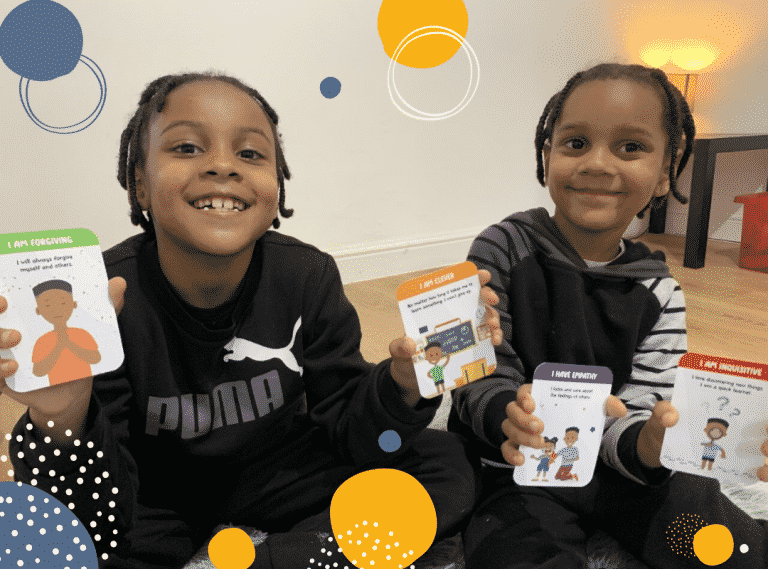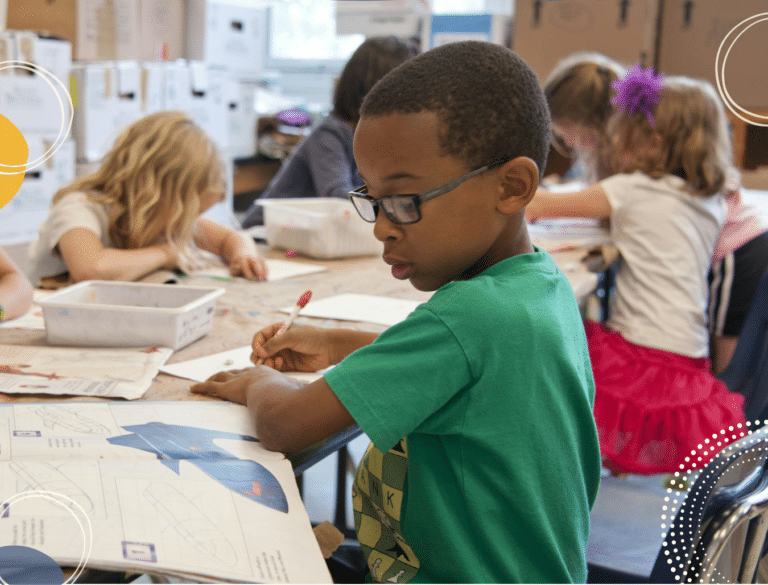How positive affirmations can boost children’s confidence
This is a guest post by Chrissy Brown, founder of Young Positive Minds. In this post, she explains how positive affirmations can help build children’s confidence and self-esteem and how parents can help.
As important as it is for parents to encourage, love and support their children, it is just as important that children learn to create these positive emotions within themselves. It is very empowering for a child to create positive thoughts and feelings of self-worth, and makes it much harder for people to tear them down. As much as we don’t like to think about it, children will go through hardship in life and we need to teach children on how to deal with those tough times.
As our children learn behaviours and wire their brains, positive affirmations can be very effective in nurturing their wellbeing. Affirming positive messages are like acts of kindness and love towards themselves that build self-esteem and self-belief.
We all develop belief systems about ourselves and the world around us from our childhood environment. The beliefs we pick up from family and friends, role models, television, magazines, and advertising can be nurturing or damaging. Negative beliefs can impact our lives greatly and can be hard to shift. But we can learn to take control of our beliefs – and this is where affirming positivity plays an impactful role. This can be done by repeating positive affirmation and incorporating it into the daily routine of our children.
How do positive affirmations work?
Regularly reciting positive affirmations for self-esteem can interrupt the negative or anxious thoughts some children have. This provides them with an opportunity to retrain and reprogram their brains to think more positive thoughts. If we can help children to focus on their positive traits, then they are less likely to define themselves based on negative self-talk.
For example, a child who is struggling with anxiety might use a positive phrase like “I can do hard things” while a child who is struggling with anger might say “I can stay calm and in control” when faced with a challenge. Affirmations for kids can be done in a variety of ways. Depending on the child, they may want to say their affirmations silently using their inner voice. Or they might want to visualise their affirmations, or say them out loud in front of a mirror, or maybe even write down a few encouraging words they can glance at from time to time.
Positive affirmations can be said as needed or as a regular part of a daily routine. Morning affirmations are a great way to start the day with a healthy dose of positivity. And if parents and children go through positive affirmations together, this is a great conversation starter and encourages children to open up and speak more freely about their feelings.
Examples of positive affirmations for children
Short and simple positive phrases work best for kids. Giving your child space to come up with their own phrases can be a powerful way for them to see their own greatness! If your child struggles with self-confidence, have them come up with three things they like about themselves, e.g. “I am kind. I am hardworking. I am funny.”
If they have a hard time thinking of qualities, it might be helpful to have a list of words handy to choose from. Young Positive Minds have free downloadable documents which family/educators can use for this method. In the meantime, here are a few example affirmations to get you started:
- I am strong
- I believe in myself
- I matter
- I am happy
- I am deserving
- I am unique
- I am enough
- I am loved
- I love myself
Positive affirmation for teens
Teenagers are often less open about their thoughts and feelings. They’re faced with peer pressure, exam stress and of course, growing up. Parents can help get teenagers involved in positive affirmations by allowing them to have the ownership of how their affirmation will look like. Give them the floor to lead the discussion. We can also use positive praise to model how they can use positive affirmations, for example, by praising them on a situation they handled well and what this might say about them.
Just by talking about positive affirmations, we can open up conversations with teenagers about mental health and wellbeing and positive coping tools. And when, as parents, we are able to share with teens our own areas of insecurities and the positive affirmations we might need to use ourselves, there is the potential to strengthen our bond with them.
Children are never too young or old to start learning tools that will nurture their mental health and elevate their self-worth. Each child is different, so explore together the tools and positive affirmations that will help your child find their greatness!
This is a guest post by Chrissy Brown, founder of Motivational Mums Club. Chrissy’s children are the models for the illustrations on these positive affirmation materials.
Does your child suffer from ANXIETY? We offer specialised support for parents to help you learn how to support an anxious child/teenager and build their confidence. Details here.







